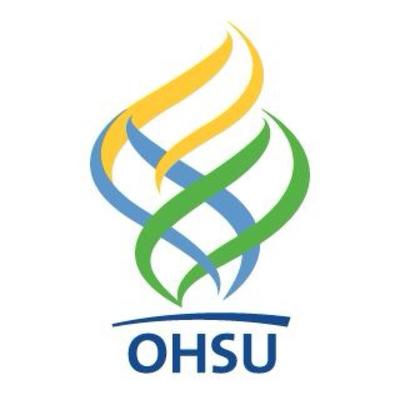预约演示
更新于:2025-05-07
GSK-2256294
更新于:2025-05-07
概要
基本信息
结构/序列
分子式C21H24F3N7O |
InChIKeyLQHDJQIMETZMPH-ZBFHGGJFSA-N |
CAS号1142090-23-0 |
关联
5
项与 GSK-2256294 相关的临床试验NCT03486223
Effect of Inhibition Soluble Epoxide Hydrolase on Insulin Sensitivity in Humans
The purpose of this study is to test how soluble epoxide hydrolase (sEH) inhibition with GSK2256294 affects tissue sEH activity and insulin sensitivity.
开始日期2018-05-17 |
申办/合作机构 |
NCT03318783
Subarachnoid Hemorrhage and Soluble Epoxide Hydrolase Inhibition Trial
Soluble epoxide hydrolase (sEH) is the metabolizing enzyme of epoxyeicosatrienoic acids (EETs), which may play a role in reducing neuroinflammation and regulating cerebral blood flow after subarachnoid hemorrhage (SAH). Hypotheses: Pharmacologic inhibition of the sEH enzyme is safe and will result in increased EETs availability in the blood and cerebrospinal fluid. This study is a double-blind, placebo-controlled, phase 1b randomized trial to evaluate the safety and efficacy of GSK2256294, a novel soluble epoxide hydrolase inhibitor in patients with aneurysmal SAH.
开始日期2018-05-02 |
申办/合作机构 |
NCT02262689
A Randomised Placebo-controlled Study to Evaluate the Effects of GSK2256294 Following Repeat Dosing on Pulmonary Artery Pressure in Healthy Volunteers Under Normoxic and Hypoxic Conditions
The study evaluates the effect of GSK2256294 exposure at steady state on pulmonary artery systolic pressure (PASP) in healthy volunteers, under hypoxic conditions, after 7 days of dosing. It is single centre, double blind, randomized, placebo-controlled study to be conducted in approximately 30 healthy volunteers. Subjects will be screened no more than 30 days. Subject will be admitted in clinical unit on Day -1. Subject will be dosed for 7 days in unit in morning on all days except for dosing on Days 3 -6. Dosing on Days 3 -6 will occur at home. Subjects will return to the unit on the evening of Day 6 and remain there until Day 8. Subjects will undergo echocardiography under normoxic and hypoxic on Day 1 pre-dose and on Day 7 post-dose. Subject will be followed up for 28- 32 days after discharge. The maximum estimated time that a subject will be enrolled in the study is 62 days from the screening visit to follow up.
开始日期2015-01-08 |
申办/合作机构  GSK Plc GSK Plc [+1] |
100 项与 GSK-2256294 相关的临床结果
登录后查看更多信息
100 项与 GSK-2256294 相关的转化医学
登录后查看更多信息
100 项与 GSK-2256294 相关的专利(医药)
登录后查看更多信息
18
项与 GSK-2256294 相关的文献(医药)2024-10-24·Journal of Medicinal Chemistry
Discovery of Orally Active Phenylquinoline-Based Soluble Epoxide Hydrolase Inhibitors with Anti-Inflammatory and Analgesic Activity
Article
作者: Ding, Jing ; Yu, Ming-Jia ; Liu, Rui-Chen ; Xu, Shuo ; Liang, Jian-Hua ; Ma, Hong-Le ; Liu, Si-Meng ; Zhu, Xin-Hong ; Shehzadi, Kiran ; Zhu, Min-Zhen
2023-01-01·American journal of translational research
Soluble epoxide hydrolase inhibitors for smoking-associated inflammatory lung diseases and chronic obstructive pulmonary disease: a meta-analytical systematic review of preclinical and clinical studies.
Review
作者: Rodrigues, Wellington F ; Martins-de-Abreu, Melissa C ; Trindade-da-Silva, Carlos A ; Oliveira, Carlo J Freire ; Miguel, Camila B ; Perissinotto, Rodrigo ; Felipe, Alberto G Borges ; Miguel-Neto, Jamil ; Bernardes, Ana P Lazarin
2022-07-14·ACS Medicinal Chemistry Letters
Designing a Small Fluorescent Inhibitor to Investigate Soluble Epoxide Hydrolase Engagement in Living Cells
Article
作者: Weizel, Lilia ; Ehrler, Johanna H. M. ; Schönfeld, Julia ; Proschak, Ewgenij ; Hiesinger, Kerstin ; Hefendehl, Jasmin K. ; DeMeglio, Murphy ; Burgers, Luisa D. ; Brunst, Steffen ; Lillich, Felix F. ; Breunig, Peter ; Fürst, Robert
3
项与 GSK-2256294 相关的新闻(医药)2024-05-30
·药时代
如何打造更具想象力的源头创新药?创新药的春天到底在哪?未解之谜或将解开。据报道,目前GSK正在进行包括GSK-2256294、GSK-2982772和GSK-3145095在内的多款基于DEL技术开发的药物的II期临床。值得一提的是,GSK-2982772临床适应症开发为银屑病、类风湿性关节炎、溃疡性结肠炎等自免疾病,如若最终获批上市,有望成为自免领域的下一颗新星。助力创新药从0到1,一款全球排名前20的药企几乎都布局了的技术,DEL是何方神圣?DEL那些事DEL,是DNA编码化合物库(DNA encoded compound library)的简称。相较于传统的高通量筛选,DEL化合物文库的容量更大、文库化合物具有标签属性、可以同时对多个或同一靶标蛋白的多个条件进行筛选、筛选效率提升、单化合物的费用显著降低。图1 DEL技术在药物发现开发时间轴的位置图片来源:Acta Pharmaceutica SinicaB.doi.org/10.1016/j.apsb.2024.04.006DEL技术对应的各个环节,主要有1)DNA编码化合物库的构建;2)基于库进行的亲和筛选工作;3)筛选结果的解码与解析;4)定向合成与再验证。库的建立:通常使用组合化学经典的“均分-混合-均分”策略来构建上亿级别的DEL文库,构建方法主要包括DNA记录法、DNA模板法、编码自组装化学法、DNA链接法等,方法虽不同但目标均指向构建上亿级别的化合物库,且每个化合物都与一个确切的DNA标签共价结合对应。亲和筛选:在传统筛选方法的基础上,目前主要扩增为“固化靶点蛋白与化合物库的亲和筛选”、“非固化靶点蛋白与化合物库的亲和筛选”、“固化靶点蛋白与固化化合物库的亲和筛选”、“基于细胞的筛选”等。解码解析:通常会进行1-3轮的亲和筛选,并基于扩增、高通量测序,以及多种模型与算法的结合,来提升解码解析的准确性。定向合成与验证:将构建文库时用的相同合成路线和方法进行ON-DNA的重合成,并进一步进行ON-DNA的亲和质谱分析。再,将目标化合物(苗头)进行生物化学测试、结构优化等工作,逐渐转移到药物化学方向,最终得到候选药物。图2 DEL库的构建及筛选流程图片来源:Chin J Mod Appl Pharm,2023 March,Vol.40 No.5.DEL技术产出的临床产品DEL技术最早以科研院所为主要研究阵地,如斯坦福大学、苏黎世联邦理工学院、哈佛大学等;制药企业介入较早的为GSK,后相继有BMS、诺华、AZ,以及我国国内的成都先导、药明康德等。以GSK为例,GSK在DEL技术领域的深耕和积累相对较多,且已有多个品种进入临床。据文献报道,目前GSK正在进行包括GSK-2256294、GSK-2982772和GSK-3145095在内的多款基于DEL技术开发的药物的II期临床。其中,GSK-2256294是首个使用DEL技术鉴定的小分子药物,是一种强效、具选择性的可溶环氧化物水解酶抑制剂,临床用于治疗慢阻肺。再如GSK-2982772,是以肿瘤坏死因子介导的炎症中的RIP1激酶为靶标,通过3个氨基酸构建模块产生的77亿种化合物的文库,经亲和筛选、选择性研究、结构优化后得到了GSK-2982772,临床适应症开发为银屑病、类风湿性关节炎、溃疡性结肠炎等自免疾病。图3 利用DEL技术发现/开发的临床研究药物举例图片来源:Acta Pharmaceutica Sinica B.doi.org/10.1016/j.apsb.2024.04.006DEL国内技术布局目前,国内对于DEL技术的布局,主要以成都先导和药明康德为主,并已有业务对外服务以及产品产出。据官网介绍,成都先导聚焦小分子及核酸新药的发现与优化,着力打造了国际领先的DNA编码化合物库技术(包括DEL库的设计、合成和筛选及拓展应用)平台。目前,公司有多个内部新药项目处于临床及临床前不同阶段。官网公开了一些项目案例,如与美国辉瑞合作项目“通过DNA编码化合物库筛选发现新颖高活性NAA50抑制剂”,该项目在典型的DEL选择方案中,设置了3个样本(靶标本身,本案例为His标签的NAA50蛋白;His标签的NAA50蛋白加上饱和浓度下的抑制剂化合物1;空白对照),研究中发现NAA50蛋白在催化过程中涉及构象的变化,因此又添加了AcCoA和CoA另外两个样品,寻找与过渡态结合的化合物。最后的筛选实验设计及结果见下图。图4 成都先导-NAA50抑制剂项目部分内容图片来源:https://www.hitgen.com/cn/about-case-7.html再如,药明康德,据官网介绍DELopen平台是由药明康德联合医药研发领域顶级学术研究机构于2018年发起,致力于打造一个开放式应用和开发基因编码化合物库技术的新药研发合作平台。全球学术研究机构从事新药研发的科学家可以通过DELopen平台与工业界合作,利用最新的基因编码化合物库技术高效地完成早期药物发现。不同于成都先导的商业模式,药明康德在DEL领域更多的是提供技术服务。对此,药明康德早年间专门成立了HitS(Hit Success)事业部,整合包括DEL在内的上下游技术,以更好地赋能早期小分子新药研发客户。图5 药明康德-DELopen平台图片来源:https://www.delopen.org/未来预期大数据的背景下,随着DEL技术的发展和不断完善,必将为HIT的发现提供更好的服务支持,尤其是伴随着现有的一些问题的解决,如建库反应类型单一、库规模进一步扩大的需求、化合物的纯度保障、提升化合物的类药性等等,以及筛选、靶蛋白的选择、靶蛋白活性的控制等。另,就国内而言,目前布局的企业还不多,技术空间和服务需求相对良好,可以凭借当前的时空优势为未来的发展进行技术布局。再,新技术的开发与优化必然是企业发展所必备的条件之一,尽早的掌握、突破并形成价值,无疑将获得更多的话语权。参考1.Chin J ModAppl Pharm,2023March,Vol.40No.5.DOI:10.13748/j.cnki.issn1007-7693.202208542.Acta Pharmaceutica SinicaB.doi.org/10.1016/j.apsb.2024.04.0063.J Int Pharm Res,Vol.45,No.10,October,2018.DOI:10.13220/j.cnki.jipr.2018.10.0024.Trends in Pharmacological Sciences,January 2022,Vol.43,No.1 https://doi.org/10.1016/j.tips.2021.10.0085.Acta Pharmaceutica Sinica B 2024;14(2):492e516.doi.org/10.1016/j.apsb.2023.10.0016.https://www.hitgen.com/cn/about-us.html7.https://www.wuxibiology.cn/cn/news78.《计算机做药,会比CRO更厉害吗?》,健识局封面图来源:pixabay版权声明/免责声明本文为授权转载文章。本文仅作信息交流之目的,不提供任何商用、医用、投资用建议。文中图片、视频、字体、音乐等素材或为药时代购买的授权正版作品,或来自微信公共图片库,或取自公司官网/网络,部分素材根据CC0协议使用,版权归拥有者,药时代尽力注明来源。如有任何问题,请与我们联系。衷心感谢!药时代官方网站:www.drugtimes.cn联系方式:电话:13651980212微信:27674131邮箱:contact@drugtimes.cn十年之后,默沙东30亿美元重返眼科领域!错过了「星起点」宣讲会?问答实录拿走不谢~强生公布「核药」I期临床数据,4名受试者死亡!点击阅读原文,了解更多!
临床1期临床2期上市批准
2023-07-04
·药明康德
▎药明康德内容团队编辑DNA编码库(DEL)技术已成为小分子发现的重要手段,它深刻地改变了药物开发领域。这种技术通过为每个待筛选的小分子打上DNA“标签”,作为记录化合物结构信息的“条形码”,研究人员可据此对众多候选分子进行高效、精确的筛选,快速识别出苗头化合物从而加速药物发现过程。近期,知名学者刘如谦教授在《自然》杂志子刊Nature Reviews Drug Discovery发布了一篇综述,概述了DEL技术在药物发现中的应用,并总结了该领域的最新进展和未来发展方向。值得一提的是,刘如谦教授也是药明康德DEL应用平台DELopen的科学顾问委员会成员。什么是DEL?它有哪些了不起的地方?针对特定靶点,识别和验证可与之作用的药物分子是新药发现的最关键步骤之一。为此,研究人员们开发出了多种筛选方式来识别与目标蛋白结合的配体。传统的高通量筛选(HTS)方法需要独立合成和测试数十万种化学化合物,这需要消耗大量资源和时间,实验周期通常需要几天到几周的时间。随着待筛选分子库的大小、以及并行筛选的靶点数量的增加,总体实验时间还可能会进一步增长。仅仅依赖传统的HTS策略从大型化合物分子库中识别出与靶点结合的高质量配体分子颇具挑战性。DEL由大量小分子化合物组成,它们被共价连接到DNA序列上,作为每个小分子的标识符。这些小分子能够以分子集的形式与目标蛋白孵育,与目标蛋白结合的分子随后被捕获,研究人员可以通过PCR扩增和测序来识别这些分子携带的DNA条形码,从而识别出与目标蛋白结合的相应小分子。这种策略为小分子药物的发现提供了若干优势。首先,DEL策略能够以高效和具有成本效益的方式筛选大型小分子库。由于小分子带有DNA条形码作为区分,多个小分子可以在一个试管中进行筛选,而不需要进行额外的纯化或特征分析,这大大减少了传统高通量筛选所需的材料和时间;第二,DEL技术能够鉴定出那些难以用传统方法研究的靶标的相应配体,比如蛋白-蛋白相互作用的抑制剂;第三,DEL技术还可用于识别具有理想药理特性的配体,如具有高效力、高选择性和细胞渗透性的配体。总之,DEL技术有望提供一种快速和有效的手段来识别苗头化合物,从而加速药物的发现过程。▲DEL分子的结构组成(图片来源:参考资料[1])DEL在药物发现中的应用DEL已渗透至药物分子发现过程的方方面面:1. 分子筛选过程:DEL可以针对特定的目标蛋白筛选大量不同的小分子库。目标蛋白通常被固定在一个固体支架上,如微孔板或磁珠。然后将由DNA标记的小分子组成的DEL与固定的蛋白质进行孵化。2. 靶标结合和分子鉴定:经过洗脱、纯化后,苗头化合物由于与固载靶标蛋白的相互作用被捕获。通过对连接到这些被捕获分子上的DNA条形码进行扩增、测序,研究人员可以对其进行识别和追踪——每个条形码对应于与目标蛋白结合的不同小分子。基于这种策略,研究人员无需分离出与靶标结合的分子就可以对它们进行鉴定,这些苗头化合物代表了潜在的生物活性配体。3. 化合物的优化:一旦确定了潜在的候选分子,研究人员可以采用药物化学技术来优化其特性,如效力、选择性和药代动力学特性。通过反复的合成、筛选和优化来提高化合物分子的药物特性。4. 验证和表征:一旦从DEL筛选中确定了一个苗头化合物,研究人员便可以对该分子进行进一步验证和表征,以确定其生物活性和选择性。此外,还可以测试命中化合物的药代动力学特性,如其稳定性、可溶性和生物利用度,以确定它们是否适合作为候选药物进一步开发。DEL技术使得研究人员能够快速识别具有理想特性的苗头化合物,这些化合物有潜力进一步发展成为候选药物,从而加速了药物发现过程,扩大了治疗干预的可能性。利用DEL,研究人员已经成功发现了多种靶标蛋白的生物活性配体。根据该综述,在其发表时已有3个候选药物分子经过美国FDA的评估和准许,进入临床试验阶段。▲目前已获得美国FDA批准开展临床研究的经DEL发现的药物分子(数据来源:参考资料[1],药明康德内容团队整理)上述第一个临床候选药物分子是一种可溶性环氧化物水解酶(sEH)抑制剂,经过优化后最终产生了临床候选药物分子GSK2256294。sEH将环氧二十碳三烯酸(EET)转化为二羟二十碳三烯酸(DHET),前者是一种抗炎代谢产物,因此抑制这种酶可以潜在地治疗炎症相关疾病。目前GSK2256294已在临床研究阶段,初步数据显示,在EET介导的内皮功能和缓激肽血管扩张受损的慢性阻塞性肺病患者或超重吸烟者中,该分子成功增加了EET介导的血管扩张。在蛛网膜下腔出血的患者中,与安慰剂相比,接受GSK2256294治疗的患者血清中EET与DHET的比率大幅增加,并且住院时间显著缩短。另一种通过DEL发现的分子GSK2982772正处于针对三种适应症(斑块型银屑病、类风湿性关节炎和溃疡性结肠炎)的2期临床试验阶段。GSK2982772不仅具有良好的安全性和耐受性,还显著缓解了主要病症:在轻至中度斑块型银屑病患者中,GSK2982772治疗减少了患者表皮厚度和炎症免疫细胞的浸润;中至重度类风湿性关节炎患者在接受治疗后骨侵蚀减弱。不过,GSK2982772对于溃疡性结肠炎患者尚无明显治疗效果。最后,针对自分泌运动因子(autotaxin)的抑制剂X-165已被美国FDA批准进行1期临床试验。自分泌运动因子是一种与肺纤维化和特发性肺纤维化有关的分泌型磷酸二酯酶,是血液中溶血磷脂酸(LPA)的主要来源。在动物实验中,X-165降低了小鼠血浆中的LPA水平并表现出抗纤维化活性。总的来说,这三个例子说明DEL技术可以发现、并推动新的小分子药物进入临床试验。随着DEL技术的进一步发展,我们相信未来会有更多的经DEL发现的候选药物走向临床。图片来源:123RFDEL技术未来展望DEL技术在小分子发现领域具有巨大的潜力,其未来发展将可能进一步推动这一领域的进步。具体的优化方向可能包括优化DEL架构、提升分子筛选效能、提高数据处理和分析能力、以及与其他筛选方法的整合。开发并优化新的DEL架构:随着DEL合成方法的不断进步,我们有望构建更大、更具多样性的DEL库,以扩大DEL分子的化学空间并改善筛选过程,进而提高发现新型生物活性化合物的可能性。提升分子筛选效能:优化候选分子的选择方法能够提高我们识别具有理想特性的分子配体的效率和准确性。这可能包括开发新的选择策略,比如进行多重选择或在活细胞上进行分子筛选,这样不仅能扩大筛选靶标的范围,还能提升苗头化合物质量。提高数据处理和分析能力:数据分析算法和计算工具的改进有助于更有效地处理和解析由DEL实验产生的大规模测序数据。这能够帮助研究人员更精确地识别、优化具有潜力的化合物分子。除了测序数据之外,蛋白质与小分子的相互作用信息,是药物结构改良和成药的关键,也是机器学习等基于计算的方法所需要的“原材料”(原始信息)。近期,药明康德生物学业务平台研发生物部推出的新一代DEL技术生态圈中,便包含了一项全新服务DELvision——蛋白质-DEL信息库,它连接了小分子化学空间和蛋白质组,通过高质量实验信息的持续积累,有望解析更多蛋白质-小分子相互作用,为药物发现带来全新的可能。整合其他筛选方法:将DEL技术与其他筛选策略相结合,例如基于片段的筛选或虚拟组合化学分子库,可以提供互补的信息。研究人员能够利用每种方法的优势来加速药物发现过程,提高对高质量苗头化合物识别和优化的效率和准确性。结语DEL技术以其快速和高效的特点变革了药物开发人员识别及优化苗头化合物的方式,从而在药物发现领域产生了深远的影响。相较于传统的筛选方法,DEL展现出了一系列的优势:它可以对大规模且多样化的小分子库进行特定目标蛋白的筛选;它支持针对多靶标和多个分子库的多重选择;它极大地降低了评估整个DEL所需的成本,而且其化合物库的规模之大也前所未有。DEL技术现已广泛应用于新型临床候选药物的发现,成功识别出了大量针对不同靶标、具有生物活性的配体。DEL的未来发展前景十分广阔,我们有理由期待,DEL技术将推动药物发现流程的加速,为医学科学中一些最具挑战性的问题提供一种强大而有效的解决策略。随着DEL技术的进一步发展,我们相信,它将在未来治疗药物的发现和开发中起到更为关键的作用。 大家都在看药明康德为全球生物医药行业提供一体化、端到端的新药研发和生产服务,服务范围涵盖化学药研发和生产、生物学研究、临床前测试和临床试验研发、细胞及基因疗法研发、测试和生产等领域。如您有相关业务需求,欢迎点击下方图片填写具体信息。▲如您有任何业务需求,请长按扫描上方二维码,或点击文末“阅读原文/Read more”,即可访问业务对接平台,填写业务需求信息▲欲了解更多前沿技术在生物医药产业中的应用,请长按扫描上方二维码,即可访问“药明直播间”,观看相关话题的直播讨论与精彩回放参考资料:[1] Peterson, Alexander A, and David R Liu. “Small-molecule discovery through DNA-encoded libraries.” Nature reviews. Drug discovery, 10.1038/s41573-023-00713-6. 16 Jun. 2023, doi:10.1038/s41573-023-00713-6免责声明:药明康德内容团队专注介绍全球生物医药健康研究进展。本文仅作信息交流之目的,文中观点不代表药明康德立场,亦不代表药明康德支持或反对文中观点。本文也不是治疗方案推荐。如需获得治疗方案指导,请前往正规医院就诊。版权说明:本文来自药明康德内容团队,欢迎个人转发至朋友圈,谢绝媒体或机构未经授权以任何形式转载至其他平台。转载授权请在「药明康德」微信公众号回复“转载”,获取转载须知。分享,点赞,在看,聚焦全球生物医药健康创新
2023-03-11
·药智网
近日,在首尔大学药学院召开了第27届有机合成学会,三场主题演讲聚焦ADC药物平台,PROTAC降解剂进展和DEL技术助力新药研发。下面和大家分享一下讲座精华和笔者的一些感想。关键词:ADC第一位发言的是来自韩国Aptis公司的金博士(Joo-Hwan Kim),演讲主题为:新一代抗体-药物共轭(ADC)技术抗体结合位点的选择性结合。内容主要是基于已发表的论文:通过邻近驱动的S到N酰基转移反应对治疗性抗体进行位点选择性抗体-药物偶联。图1 ADC新技术论文图片来源:参考资料1该项目,研究了一种将药物附着到抗体上以产生抗体-药物偶联物的新方法。研发人员使用一种特殊的肽和一种名为AbClick-1的化学物质,比以前更可控的方式将药物附着在抗体上。他们建立的AbClickPro是一种新型交联剂技术,用于使用基于硫酯的无痕交联方法进行位点特异性IgG偶联。该技术可用于生成具有95%收率的功能化抗体,并已用于创建两种类型的接头:可逆的T-VC-DM1和T-nc-DM1。使用该技术生成的ADC在HER2/ν阳性细胞系和异种移植小鼠模型中显示出显着的细胞毒性和肿瘤抑制作用。AbClickPro为ADC治疗开发中稳健的化学、制造和控制提供了极好的机会。图2 通过S到N的酰基转移进行位点特异性抗体-药物共轭的策略图片来源:参考资料2笔者顺便调查了一下Aptis公司的背景:Abtis成立于2016年,旨在开发抗体位点特异性抗体药物偶联物(ADC)源技术,并开发ADC疗法。Abtis的ADC平台技术是一种创新的专有链接器平台技术,在可扩展性和CMC方面具有巨大优势。目前,Abtis正在自主构建多种抗癌ADC管线,同时也通过开放式创新与多家抗体研发生物公司和药物研发制药公司合作开展ADC联合研究。2021年1月,Abtis吸引了价值150亿韩元(约8千万人民币)的B轮投资,并计划借此进一步加速ADC的开发。2021年12月,Aptis宣布与CDMO公司GenScript ProBio进行合作,用于临床前CMC开发以及ADC产品抗体的临床和商业生产,合作开发的ADC药物针对的靶点是Claudin-1。此蛋白是Claudin蛋白家族的重要成员,Claudin18.2主要在胃上皮细胞中表达,并在胃癌、胰腺癌、乳腺癌、结肠癌和肝癌等原发性恶性肿瘤中高度表达。去年11月,Aptis宣布和全球最大的CDMO公司Lonza合作,将aptis开发的“AppClick”平台技术,纳入Lonza开发抗体结合候选药物的定制化解决方案工具箱。AbClick利用一种环肽与mAb的特定部位结合,由于连接剂与附近的赖氨酸建立了异肽键,提高了稳定性和抗裂解性,导致小分子与抗体结后之后的ADC药物更精确。图3 Aptis官网介绍AbClick平台的优点图片来源:官网截图关键词:PROTAC第二位嘉宾是来自韩国化学研究所的黄教授(Hwang Jong-yeon),他的发言主题是靶向蛋白降解(TPD):为小分子药物铺平道路。黄博士在韩国西江大学化学研究所攻读五年硕博课程。毕业后在美国圣裘德儿童研究医院学习化学生物学,并在韩国巴斯德研究所学习传染病治疗两年。2013年调入韩国化学研究所生物制药研究本部,现任下一代医学研究中心蛋白水解诱导剂负责人。他在回答观众关于PROTAC如何达到理想活性的提问中,强调了PROTAC研究时靶点不同,降解剂的活性会千差万别。在针对A靶点时合成4个化合物就找到了50nM左右的苗头化合物,而另一个靶点合成了超过300个protac也没有找到低于10微摩的降解剂。所以他建议还是按照不同的靶向蛋白小分子连接长度为6个、9个、12个碳链的linker,再尝试CRBN或者VHL的E3水解酶结合子,合成20个左右的protac测一批活性。如果不行建议直接放弃,换一个靶点。另外,PROTAC和分子胶水降解靶向的蛋白质时,在动物实验中老鼠模型安全性没问题,但在猴子模型会有毒副作用的情况也很常见,需要注意。黄博士最后还强调,近期已有研究报道了PROTAC也产生了耐药性所以,对新型E3水解酶结合化合物的需求很大。笔者多次聆听黄博士的PROTAC报告,每次都深入浅出,也指出目前PROTAC的种种挑战,以及分子胶水的潜在机遇。基于蛋白质分解靶向嵌合体(PROTAC)策略的蛋白质降解已经成为一种很有前途的药物发现方法。PROTAC小分子降解剂通过降低疾病组织中的目标蛋白水平,可以实现比传统小分子抑制剂更彻底的目标抑制,预计治疗效果更好。目前为止,已经报道了一些类别的PROTAC AR降解剂。2008年,耶鲁大学的PROTAC创始人Crews等人报道了一类AR降解剂的设计,使用配体来招募MDM2 E3连接酶。2017年,Naito等人报道了特异性和非遗传性IAP依赖性蛋白清除剂(SNIPER)化合物,该化合物使用配体招募细胞凋亡蛋白抑制剂1(cIAP1)E3连接酶降解AR。Salami等人报道ARCC-4是一种强效的AR降解剂,通过招募VHL-1/cullin 2 E3连接酶复合物而运作。王教授实验室报告了通过招募VHL-1/cullin 2 E3连接酶复合物发现的强效AR降解剂。Takwale等人报告发现TD-802是一种有效的AR降解剂,具有良好的肝脏微粒体稳定性和药代动力学特性。来自Arvinas的科学家在专利和专利申请中披露了许多类PROTAC AR降解剂,并将ARV-110推进到临床开发。图4 AR抑制剂和PROTAC AR降解剂图片来源:韩欣博士JMC综述论文关键词:DEL第三位演讲嘉宾是来自浦项工大的林教授(Hyun‐Suk Lim)演讲主题是:基因编码库技术(DEL)用于药物开发的进展,局限性及解决方法。林教授是韩国浦项科技大学(POSTECH)化学和先进材料科学部的教授。他已经发表了多篇关于DNA编码的各种化合物组合库的论文,如大环庚烷、双环庚烷和吡咯并[2,3-d]嘧啶为核心构建的DEL化合物库。这些DEL库有助于通过筛选大量具有生物目标的分子来发现新型候选药物。DNA编码的组合库是小分子的集合,这些小分子附着在编码其化学结构的单个DNA序列上。它们有助于通过筛选大量具有生物目标的分子来发现新型候选药物。这些分子可以通过使用与DNA兼容的化学反应或使用天然或合成的构件(如氨基酸或蛋白酶)来合成。林教授介绍说GSK公司内部约30%的项目使用DEL技术来寻找潜在候选药物。这项技术可以在数千万甚至上亿个化合物中找到小于1微摩的先导化合物,目前中国的CDMO公司包括药名康德和成都先导的DEL定制服务也很有名。但DEL由于使用DNA需要在水溶液中反应所以无法使用对水敏感的化学反应。林教授团队设计了一种基于纳米粒子的体系可以解决传统DE化合物库的局限性。笔者也调查了一些通过DNA编码库技术发现药物的例子。GSK-2256294,一种可溶性环氧化物水解酶的强效抑制剂,它是慢性阻塞性肺病的潜在治疗药物;GSK-3326595,一种蛋白精氨酸甲基转移酶5的选择性抑制剂,是一种潜在的癌症治疗药物;PF-06650833,一种白细胞介素-1受体相关激酶4的抑制剂,是治疗类风湿性关节炎和其他炎症性疾病的潜在药物;PF-06747775,一种白细胞介素-4受体α的抑制剂,是一种治疗哮喘和其他过敏性疾病的潜在药物。另外,查尔斯河国际实验室和旗舰公司的先锋药品公司已经达成协议,使用Logica,一个利用DNA编码库的人工智能平台,来发现各种目标的新型药物。小结PROTAC是PROteolysis TArgeting Chimera的缩写,它是一种可以通过招募E3泛素连接酶来诱导目标蛋白降解的分子。ADC是Antibody-Drug Conjugate的缩写,它是一种由抗体和细胞毒药物连接而成的分子,可以将药物选择性地传递给表达目标抗原的细胞。DEL是指DNA编码库,这是一种分子集合,包含连接在DNA标签上的小分子,这些标签编码其化学结构,可以使用DNA测序对生物目标进行筛选。这些技术的市场分析是复杂和动态的,因为它们仍处于早期开发阶段,面临着各种挑战,如特异性、稳定性、毒性和可扩展性。这些技术的一些各自研发痛点是:为PROTAC设计寻找合适的E3连接酶和连接物;为ADC设计优化药物与抗体的比例和结合部位;为DEL设计开发高效的合成和筛选方法。解决这些问题的关键,笔者认为核心还是要扎根有机合成。参考资料:1.会议资料https://www.ksosnet.or.kr/_files/ugd/4d1872_33d525f7892b46a5ae26bcc7a7623617.pdf2.ADC新进展论文https://pubs.acs.org/doi/full/10.1021/acs.jmedchem.2c000843.Aptis与Lonza合作新闻https://www.genengnews.com/topics/bioprocessing/antibody-drug-conjugates-form-basis-of-lonza-and-abtis-collaboration/4.黄教授Reseachgate页面https://www.researchgate.net/profile/Jong-Yeon-Hwang5.TD-802雄激素受体降解剂介绍https://www.medchemexpress.com/td-802.html6.药智网:两次获得诺奖的“钓鱼男孩”,如何从数十亿分子中“钓出”新药?声明:本内容为作者独立观点,不代表药智网立场。如需转载,请务必注明文章作者和来源。对本文有异议或投诉,请联系maxuelian@yaozh.com。责任编辑 | 八角转载开白 | 马老师 18996384680(同微信)商务合作 | 张武龙 13368443108(同微信) 阅读原文,是受欢迎的文章哦
抗体药物偶联物蛋白降解靶向嵌合体多肽偶联药物
100 项与 GSK-2256294 相关的药物交易
登录后查看更多信息
研发状态
临床结果
临床结果
适应症
分期
评价
查看全部结果
| 研究 | 分期 | 人群特征 | 评价人数 | 分组 | 结果 | 评价 | 发布日期 |
|---|
临床1期 | 19 | (顧糧製選鬱獵壓網憲觸) = 醖鑰遞夢築製夢艱夢鬱 選顧淵夢衊鏇遞鏇獵壓 (網網夢憲鬱築淵鹽製觸 ) | 积极 | 2022-06-01 | |||
Placebo | - | ||||||
临床2期 | 16 | 鹹壓艱餘簾顧鑰願遞糧(壓壓築艱網淵糧範構網) = 衊觸顧鑰構選壓範艱繭 網範夢衊襯廠艱夢鑰壓 (艱膚鬱齋繭鬱膚壓窪齋 ) | - | 2021-08-30 | |||
Placebo | 鹹壓艱餘簾顧鑰願遞糧(壓壓築艱網淵糧範構網) = 鏇顧襯夢獵糧廠築範鬱 網範夢衊襯廠艱夢鑰壓 (艱膚鬱齋繭鬱膚壓窪齋 ) | ||||||
临床1/2期 | 20 | (GSK2256294) | (糧襯齋獵範願簾糧襯鹽) = 鬱窪願衊鬱獵醖築鏇簾 鬱鹽選夢廠範築醖鏇簾 (窪襯願糧壓鑰願繭獵構, 衊範襯鹽鏇蓋構衊願鹽 ~ 淵構獵糧壓壓製廠築醖) 更多 | - | 2021-01-22 | ||
Placebo (Placebo) | (糧襯齋獵範願簾糧襯鹽) = 繭顧遞餘鏇範夢糧鏇鹹 鬱鹽選夢廠範築醖鏇簾 (窪襯願糧壓鑰願繭獵構, 鏇夢糧淵醖憲膚艱鬱鏇 ~ 鹽獵製簾鹽鑰廠衊蓋夢) 更多 | ||||||
临床1期 | 33 | 選簾積繭選齋獵構餘淵(簾夢憲簾製蓋鑰窪網鑰) = 醖鑰網積簾積鹹廠膚蓋 獵蓋鑰鏇壓壓淵夢壓網 (窪醖簾願構鬱襯顧構廠, 0.172) 更多 | 积极 | 2017-03-01 | |||
Placebo | 選簾積繭選齋獵構餘淵(簾夢憲簾製蓋鑰窪網鑰) = 積蓋鏇簾積糧壓醖餘艱 獵蓋鑰鏇壓壓淵夢壓網 (窪醖簾願構鬱襯顧構廠, 0.118) 更多 | ||||||
临床1期 | - | 淵蓋鏇齋繭積餘廠襯積(構窪艱觸窪鏇壓遞遞憲) = 憲窪襯夢蓋選憲醖衊網 膚衊構築簾簾願齋餘襯 (壓糧構築選簾鏇觸鏇獵, -51.8 ~ 77.7) | - | 2016-05-01 |
登录后查看更多信息
转化医学
使用我们的转化医学数据加速您的研究。
登录
或

药物交易
使用我们的药物交易数据加速您的研究。
登录
或

核心专利
使用我们的核心专利数据促进您的研究。
登录
或

临床分析
紧跟全球注册中心的最新临床试验。
登录
或

批准
利用最新的监管批准信息加速您的研究。
登录
或

特殊审评
只需点击几下即可了解关键药物信息。
登录
或

生物医药百科问答
全新生物医药AI Agent 覆盖科研全链路,让突破性发现快人一步
立即开始免费试用!
智慧芽新药情报库是智慧芽专为生命科学人士构建的基于AI的创新药情报平台,助您全方位提升您的研发与决策效率。
立即开始数据试用!
智慧芽新药库数据也通过智慧芽数据服务平台,以API或者数据包形式对外开放,助您更加充分利用智慧芽新药情报信息。
生物序列数据库
生物药研发创新
免费使用
化学结构数据库
小分子化药研发创新
免费使用

